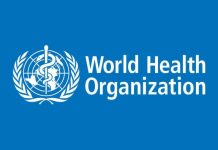Emerging from Isolation…
Technology is helping pharmacists, physicians, and other health care professionals emerge from the functional “silos” that make it difficult for them to communicate with each other, according to Michele Vilaret, Director of Telecommunications Standards for the National Association of Chain Drug Stores.
“Because miscommunications are dramatically reduced, the point of sale at retail pharmacies becomes a counseling rather than a sales event where pharmacists do what they do best: use their clinical knowledge to explain the particulars of the medication to the patient,” said Karla Anderson, a Managing Director for BearingPoint Life Sciences, one of the world’s largest management and technology consulting firms.
Networks are of course everywhere…
ICT tools get being invented day and night; no one needs to rush to a newspaper stand or the Internet to find out. The regular bolus of adverts alone, spread by manufacturers of devices, by all the means they can is enough for you to know that a new ICT tool is born. And sooner than it is released, it is actively distributed to all parts of the world.
In June 2005, my article: Networking Schools of Pharmacy was published by Pharmanews. The article gained prominence long after then and later became a whole chapter in my book: Pharmacy & Information Technology in the 21st Century. However, what the modern world is teaching me now is that there are or there could be networks, not only in Nigeria, but other parts of the world. However, what matters is their affordability by institutions and individuals.
The Internet is everywhere across the globe. What matters are the prerequisites to it (e.g. computers) and the access to the Internet itself; all of which definitely come at some price.
In the advanced world, they have not only succeeded in networking schools but their entire endeavours of life. The prototype is excellent. I am glad too in Nigeria, we are in the process of networking everything, however the government needs to give more attention to important areas and the citizenry too must put their hearts into it, in order to make it part of the new life.
Networks Push for True Partnerships
The goal is to integrate the many different types of systems available to pharmacists, physicians, HMOs, hospitals, and pharmaceutical companies. This includes what many believe is the holy grail of health care technology: electronic health records. When integration occurs, all health care providers will have secure and transparent access to all the information they need to better serve patients. This is likely to have an enormous impact on pharmacists.
“Although all the pieces won’t be in place for some time, with the help of technology, pharmacists are finally becoming full-fledged members of the clinical patient support team,” said Barry P. Chaiken, Associate Chief Medical Officer for BearingPoint, which provides design and implementation of next-generation systems for health care organisations.
“[Pharmacists] possess extraordinary amounts of clinical knowledge,” remarked Chaiken. “They are bright, intelligent, and highly motivated and should be having a tremendous impact on the practice of health care. By embracing technology – as many of them are doing – their ability to become partners with other clinicians should easily be achievable.”
Pharmacists couldn’t agree more. “I didn’t go to pharmacy school to count to 100,” said Richard Ost, pharmacist and owner of the Philadelphia Pharmacy. He employs three pharmacists and fills 750 prescriptions a day, an astounding 292% over the national average, for 3,800 customers each month. Since he has a small staff, he relies on an automated pharmacy workflow system that makes it possible for him to handle his heavy volume. “The more that technology can take over basic operations and facilitate communications with other health care professionals, the better job I can do serving patients,” noted Ost.
Is this network coming to Nigeria?
ScriptPro, in collaboration with TeleManager Technologies, offers advanced functionality for the Refill TeleManager Interactive Voice Response System (IVR) through ScriptPro’s SP Central Workflow System. This product allows patients to access information about the status of their prescriptions and enables pharmacists to know in real time the status and location of every prescription.
With the newly integrated IVR/workflow product, patients can call the pharmacy and input a prescription number, to order a refill. In addition, patients can find out the status of a prescription on the phone (i.e., if the doctor has authorised the refill yet, or if the prescription is ready to be picked up). Pharmacists can view all prescription orders coming through the IVR and see their status on the SP Checkpoint or SP Station workflow screen. With the use of multimedia graphics, pharmacists can view, listen, enter data, or transcribe on the screen. Because SP Central logs all pharmacy calls during the past week, pharmacists can check the log to investigate any discrepancies. In an effort to optimise patient service, the enhanced IVR system will make outbound calls to remind patients to pick up or refill their prescription medications.
What Limits Nigeria?
The price of Internet is not as expensive as we think. Government is largely responsible for procurement of ICT devices in abundant quantities, mostly institutions of learning. However, today, private organisations and companies are making their own contribution for example: the MTN e-library.
Schools are important places and ought to be flooded with computers and ICT devices. In developed countries, they are no longer thinking of computers and internet in the learning environment, as even every single room in students’ hostels is equipped with computer and Internet.
The good score we have is that other endeavours, like school registration, application for employments, among others, are now done online. In general, Nigeria is only limited by lack of abundant tools to make us join the league of global village.










